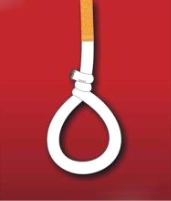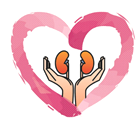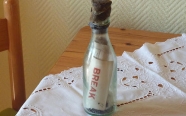ΧβΡΩΡΎ»ί
ΓΨΧβΡΩΓΩΕΧΈΡΗΡ¥μΘ®Ι≤10–ΓΧβΘΜΟΩ–ΓΧβlΖ÷Θ§¬ζΖ÷10Ζ÷Θ©
ΦΌΕ®”Δ”οΩΈ…œάœ Π“Σ«σΆ§Ήά÷°ΦδΫΜΜΜ–όΗΡΉςΈΡΘ§«κΡψ–όΗΡΡψΆ§Ήά–¥ΒΡ“‘œ¬ΉςΈΡΓΘΈΡ÷–Ι≤”–10¥Π”ο―‘¥μΈσΘ§ΟΩΨδ÷–ΉνΕύ”–ΝΫ¥ΠΓΘΟΩ¥Π¥μΈσΫω…φΦΑ“ΜΗωΒΞ¥ ΒΡ‘ωΦ”ΓΔ…Ψ≥ΐΜρ–όΗΡΓΘ
‘ωΦ”ΘΚ‘Ύ»±¥ ¥ΠΦ”“ΜΗω¬©Ή÷ΖϊΚ≈Θ®ΓΡΘ©Θ§≤Δ‘ΎΤδœ¬Οφ–¥≥ωΗΟΦ”ΒΡ¥ ΓΘ
…Ψ≥ΐΘΚΑ―Εύ”ύΒΡ¥ ”Ο–±œΏΘ®ΘήΘ©Μ°ΒτΓΘ
–όΗΡΘΚ‘Ύ¥μΒΡ¥ œ¬Μ°“ΜΚαœΏΘ§≤Δ‘ΎΗΟ¥ œ¬Οφ–¥≥ω–όΗΡΚσΒΡ¥ ΓΘ
ΉΔ“βΘΚ
1. ΟΩ¥Π¥μΈσΦΑΤδ–όΗΡΨυΫωœό“Μ¥ ΘΜ
2. ÷Μ‘ –μ–όΗΡ10¥ΠΘ§Εύ’ΏΘ®¥”ΒΎ11¥ΠΤπΘ©≤ΜΦΤΖ÷ΓΘ
ItΓ·s not the people you came across in your daily life who will stand by you in time of a need. ItΓ·s your family who will but itΓ·s important to know that. It happens such often that we end up take our parents for granted. We hurt them many cases and they are treated with disrespect for not understanding them. ItΓ·s necessary to understand the fact that there is always different in opinions across two generations. But what really matters is the unconditionally love and care that they hold for us, that I believe is truly valuable.
ΓΨ¥πΑΗΓΩ
ItΓ·s not the people you ![]() across in your daily life who will stand by you in time of
across in your daily life who will stand by you in time of ![]() need. ItΓ·s your family who will
need. ItΓ·s your family who will ![]() itΓ·s important to know that. It happens
itΓ·s important to know that. It happens ![]() often that we end up
often that we end up ![]() our parents for granted. We hurt them ΓΡin many cases and they are treated with disrespect for not understanding
our parents for granted. We hurt them ΓΡin many cases and they are treated with disrespect for not understanding ![]() . ItΓ·s necessary to understand the fact that there is always
. ItΓ·s necessary to understand the fact that there is always ![]() in opinions across two generations. But what really matters is the
in opinions across two generations. But what really matters is the ![]() love and care that they hold for us,
love and care that they hold for us, ![]() I believe is truly valuable.
I believe is truly valuable.
ΓΨΫβΈωΓΩ
ΒΎ“Μ¥Π:cameΓζcomeΓΘΗυΨί»ΪΈΡ÷ς“Σ ±Χ§ΈΣ“ΜΑψœ÷‘Ύ ±“‘ΦΑ¥Υ¥ΠΟη ωΆ®≥ΘΒΡ«ιΩωΩ…÷Σ,¥Υ¥Π”Π”Ο“ΜΑψœ÷‘Ύ ±ΓΘ
ΒΎΕΰ¥Π:…Ψ≥ΐaΓΘneed‘Ύ¥Υ±μ Ψ"ΕΧ»±,»±…Ό",ΈΣ≤ΜΩ… ΐΟϊ¥ ΓΘin time of need"…ζΜνάßΡ― ±"ΓΘ
ΒΎ»ΐ¥Π:butΓζandΓΘΡψΒΡΦ“»ΥΫΪΜα÷ß≥÷Ρψ,Εχ«“÷ΣΒάΡ«“Μ ¬ Β «Κή÷Ί“ΣΒΡΓΘ«ΑΚσ≤Μ «ΉΣ’έΙΊœΒ,Εχ «Υ≥≥–ΙΊœΒ,Ι ”ΠΫΪbutΗΡΈΣandΓΘ
ΒΎΥΡ¥Π:suchΓζsoΓΘ‘Ύso/such...that...Ψδ–Ά÷–,so–ό Έ–Έ»ί¥ ΜρΗ±¥ ,such–ό ΈΟϊ¥ ΓΘ¥Υ¥Π–ό ΈΗ±¥ ,Ι ”ΟsoΓΘ
ΒΎΈε¥Π:takeΓζtakingΓΘend up doing sth. «ΙΧΕ®¥ν≈δ,“βΈΣ"“‘(Ήω)Γ≠Γ≠Ϋα χ"ΓΘ
ΒΎΝυ¥Π:‘ΎthemΚΆmany÷°ΦδΦ”inΓΘΗυΨίΨδ“βΩ…÷Σ,¥Υ¥Π±μ Ψ"Έ“Ο«‘ΎΚήΕύ«ιΩωœ¬…ΥΗΗΡΗΒΡ–Ρ",in many/most cases"‘ΎΚήΕύ/Εύ ΐ«ιΩωœ¬"ΓΘ
ΒΎΤΏ¥Π:themΓζusΓΘΗΗΡΗ≤Μ±Μ(Έ“Ο«)ΉπΨ¥ «“ρΈΣΥϊΟ«≤ΜάμΫβΈ“Ο«ΓΘΙ ”ΠΫΪthemΗΡΈΣus≤≈ΖϊΚœ¬ΏΦ≠ΓΘ
ΒΎΑΥ¥Π:differentΓζdifferenceΓΘ¥Υ¥Π‘Ύ¥φ‘ΎΨδ–Ά÷–”ΟΟϊ¥ –Έ Ϋ,ΙΙ≥…"there be+Οϊ¥ "ΫαΙΙΓΘ
ΒΎΨ≈¥Π:unconditionallyΓζunconditionalΓΘ¥Υ¥Π–ό ΈΟϊ¥ ,”Π”Ο–Έ»ί¥ ΓΘ
ΒΎ °¥Π:thatΓζwhichΓΘthat≤ΜΩ…“ΐΒΦΖ«œό÷Τ–‘Ε®”ο¥”Ψδ,¥Υ¥Π÷ΗΈο«“‘Ύ¥”Ψδ÷–Ής÷ς”ο,”Π”ΟwhichΓΘ

 «α«…ΕαΙΎ÷ή≤⑬ΩΦ÷±Ά®÷–ΩΦœΒΝ–¥πΑΗ
«α«…ΕαΙΎ÷ή≤⑬ΩΦ÷±Ά®÷–ΩΦœΒΝ–¥πΑΗΓΨΧβΡΩΓΩΘ® °ΤΏΘ©
»κΕ§“‘ά¥»ΪΙζ–μΕύΒΊ«χΕύ»’±ΜΈμω≤Η≤Η«ΓΘ«κΗυΨίœ¬Οφ±μΗώάοΒΡΧα Ψ–¥“ΜΤΣ120¥ Ήσ”“ΒΡΈΡ’¬Θ§ΈΡ’¬”ΠΑϋά®“‘œ¬ΡΎ»ίΘΚΈμω≤ΧλΤχ≤ζ…ζΒΡ‘≠“ρΘΜΈμω≤ΧλΤχ‘λ≥…ΒΡ”ΑœλΘΜΡψΒΡΩ¥Ζ®ΚΆΫ®“ιΘ®÷Ν…ΌΝΫΒψΘ©ΓΘΩΣΆΖ“―Ηχ≥ωΘ§≤ΜΫχ»κΉή¥ ΐΓΘ
≤ΈΩΦ¥ ΜψΘΚΈμω≤ fog and hazeΘΜ≈≈Ζ≈ exhaustΘΜΒγ≥ßpower station
Έμω≤ΧλΤχ≤ζ…ζΒΡ‘≠“ρ | Έμω≤ΧλΤχ‘λ≥…ΒΡ”Αœλ | ΡψΒΡΩ¥Ζ® |
| ≥ω––ΖΫ ΫΘΜ …μΧεΫΓΩΒΘΜ ΙζΦ“–ΈœσΘΜ | 1Γ≠Γ≠. 2Γ≠Γ≠. |
Many areas ic China have been covered by fog and haze for days in a row since winter, which causes great trouble to peopleΓ·s life.
_________________________________________________________________________
_________________________________________________________________________
_________________________________________________________________________
_________________________________________________________________________
_________________________________________________________________________
_________________________________________________________________________



